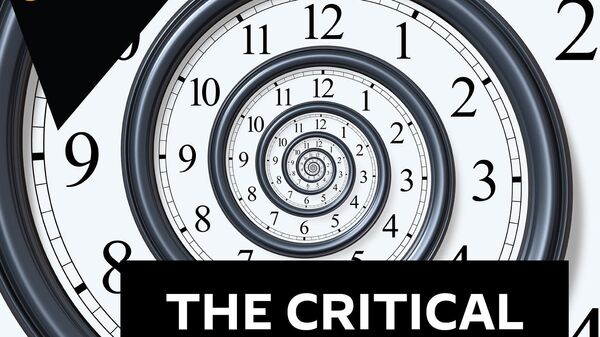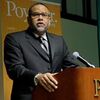As the US deals with the federal government's failure to renew pandemic relief, the social unrest appears to be taking a turn for the worse. Is this in any way related to the economic troubles? If so, are these one-time occurrences, and what can be done to calm the violence?
The Washington Post recently ran a column by notorious pro-war neoconservative Max Boot praising the so-called "A Team" of foreign policy advisers surrounding Democratic presidential candidate Joe Biden. Is this Biden team a rerun of the group of foreign policy advisers to former US President George W. Bush that the Post once described as a “dream team?”
In what is clearly a very strange move, "[t]he US government has blacklisted several Russian scientific institutes, including the Russian Defense Ministry’s 48th Central Research Institute, which has worked with other non-military medical centers to develop and test the world’s first COVID-19 vaccine," Ben Norton wrote for the Strategic Culture Foundation on Saturday Meanwhile, Ted Galen Carpenter wrote in The American Conservative on Friday, "A dangerous vehicle collision between US and Russian soldiers in Northeastern Syria on Aug. 24 highlights the fragility of the relationship and the broader test of wills between the two major powers." What are we to make of this?
"One of President Trump’s top medical advisers is urging the White House to embrace a controversial 'herd immunity' strategy to combat the pandemic, which would entail allowing the coronavirus to spread through most of the population to quickly build resistance to the virus, while taking steps to protect those in nursing homes and other vulnerable populations, according to five people familiar with the discussions," the Washington Post reported Monday. Meanwhile, the New York Times reported Sunday: "It took more than three months for the United States to reach one million coronavirus cases after reporting its first confirmed infection, but less than a third of that time to notch the latest million-case leap. On Sunday, the United States hit yet another milestone, with six million reported cases, according to a New York Times database." Will "herd immunity" work?
Our next guest, Andrei Nekrasov, is a film director, writer and producer who believed the story of Bill Browder and the Magnitsky Act and set out to create a documentary film about it. His project was welcomed by Browder and his associates, so much so that Browder agreed to work with Nekrasov in the making of the film. Strangely, halfway through the project Nekrasov began to realize that Browder’s story was inconsistent with the facts. He approached Browder, only to be admonished and attacked as a Russian propagandist. Nekrasov finished the documentary, and you can now find it at MagnitskyAct.com.
Neoconservatives Jacob Nagel and Mark Dubowitz of the Foundation for the Defense of Democracies argued in a Monday op-ed in Newsweek, "The Trump administration must continue its maximum pressure campaign while building safeguards to prevent a return to the fatally flawed nuclear agreements of the past." Meanwhile, the Wall Street Journal reported on August 14, "US threats of legal action and sanctions forced Greek shipowners to surrender Iranian fuel to the US government in recent days, people familiar with the confiscation said." Additionally, RT reported Friday, "Tehran has poked fun at Mike Pompeo after the top US diplomat set a deadline to ‘snap back’ sanctions on Iran under JCPOA, which he branded a 'foolish' deal, and despite the UN Security Council refusal to back the US initiative."
"The COVID-19 pandemic exploded in New York City over four months ago and, so far, it has claimed 18,979 lives and infected 225,713 people," City Limits reported on August 25. "Still, on top of the fear of catching the disease, ending up in the hospital or even dying, what terrifies people ... is hunger. An estimated 2 million New Yorkers are struggling to afford their groceries." Meanwhile, The Hill reported Sunday, "The odds are rising that any deal on a fifth coronavirus relief package will be tied to legislation to prevent an October 2 government shutdown." What does this mean for the US going forward?
"Zhang Yiming’s plan to sell the US operations of his short-video app TikTok to avoid a shutdown was thrown into jeopardy after China asserted authority over a deal already under scrutiny by the Trump administration," Bloomberg reported Monday. "Beijing on Friday added uncertainty to already thorny negotiations over the sale of ByteDance Ltd.’s prized asset, claiming the ability to block a sale to foreign suitors Microsoft Corp. or Oracle Corp. with tighter restrictions on artificial intelligence exports." Meanwhile, Mark J. Valencia wrote in a Monday op-ed for the South China Morning Post, "With more tit-for-tat rhetoric and military posturing, China and the United States seem to be heading towards a showdown in the South China Sea." Can war be avoided?
Guests:
Gary Flowers - Public policy analyst
Danny Sjursen - Retired US Army major and author of "Patriotic Dissent: America in the Age of Endless War"
Mark Sleboda - Moscow-based international relations and security analyst
Margaret Flowers - Pediatrician, health reform activist and co-director at Popular Resistance
Andrei Nekrasov - Film director, writer and producer
Alexander Mercouris - Editor-in-chief of The Duran
Daniel Lazare - Investigative journalist and author of "The Velvet Coup"
Ted Rall - Political cartoonist and syndicated columnist
We'd love to get your feedback at radio@sputniknews.com




